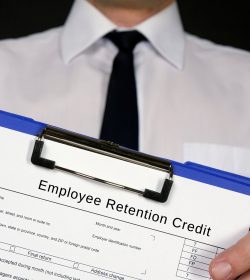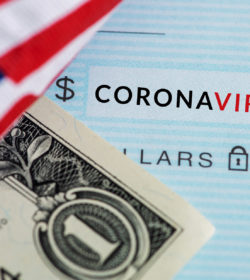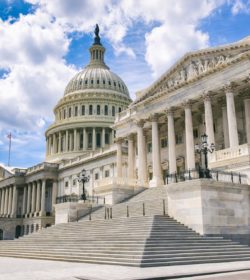We realize you have questions regarding the CARES Act which aims to boost our economy with over $2 trillion in relief. We are anxiously awaiting the final passage of this bill and the provisions of the individual stimulus payments and small business loan provisions.
While we do have a copy of the Senate’s version, we must wait for the bill’s passage and final language in order to provide clear and concise guidance. The legislative process is not completed. Further details on how to participate will be forthcoming as they become available. But in preparation for the stimulus program, below are some steps you can take and highlights of the pending legislation:
- SBA DISASTER LOAN: Apply for the Small Business Administration’s (SBA) Economic Injury Disaster Loan (EIDL). Part of this loan program provides an emergency grant to receive an advance of no more than $10,000, which the SBA must distribute within three days. The money may be used to pay for employee sick leave (COVID-19-related), mortgage or rent, and other overhead expenses. The grants would be awarded on a first come first served basis until the $10 billion fund is exhausted, and applicants would not have to repay the $10,000 grant even if they are denied the loan.
- This program is active and can be accessed now. Be aware the SBA is dealing with a high volume. SBA EIDL website
- SBA FORGIVABLE CARES ACT LOAN: When available, apply for the SBA’s 7(a) program which covers the “Paycheck Protection Program”. These loans help business owners cover payroll costs and other working capital expenses not already covered by previous federal relief programs.
- Employers may be eligible for a portion of their loan to be forgiven (tax-free) for amounts spent for certain payroll, sick leave, family leave and other overhead expenses between February 15 and June 30, 2020, as well as certain other debt obligations incurred prior to February 15, 2020.
- We encourage all clients to consider applying for this loan since it appears most may qualify for loan forgiveness.
- To secure a loan, several documents will be needed. As your financial partner, Thomas Doll will be proactively working to gather the documents for our full-service accounting clients.
- You cannot yet apply for this loan. This program is part of the pending CARES Act, which is expected to pass the House this week.
- The SBA has 15 days from the date the CARES Act becomes law to provide regulations and necessary guidance to get the program operating and then likely another 2-4 weeks to go through the loan process. At this time, the only thing to do is to wait.
- RETIREMENT ACCESS + PENALTY WAIVER: The bill allows for a withdrawal of money from retirement funds (i.e., 401K, etc.) of up to $100,000 in 2020 without paying a penalty and taxed over 3 years. Amount can be repaid during the 3-year period beginning on the day after the date of the distribution (similar to current 60-day rollover options).
- STUDENT LOAN ASSISTANCE: Federal student loan borrowers would not be required to make a payment through September 30, 2020. During this time, no interest would accumulate on those federal loans (payment suspension applies only to loans held by the Department of Education, not private loans). Regardless, loan borrowers should call their lender to verify eligibility.
- In addition, $5,250 of student loan repayments by employers can be treated as tuition payments and not included in wages/income.
- EMPLOYER PAYROLL TAX DEFERMENT: The employer’s share of the Social Security tax can be deferred by Employers and Self-Employed individuals until December 31, 2020. The deferred amounts would be paid over the following 2 years, with half of the amount required to be paid by December 31, 2021, and the other half by December 31, 2022.
- Be aware, this is just a deferral of tax payments. This is not a forgiveness or waiver of Social Security taxes.
- INDIVIDUAL TAX REBATE: The bill provides for a one-time federal income tax rebate for eligible taxpayers in 2020. The rebate amount would be $1,200 for individual tax filers and $2,400 for those filing a joint return. The amount of the rebate will be reduced for single filers making more than $75,000 and joint filers earning in excess of $150,000. In addition, a rebate of $500 is available for each child.
- SUPPLEMENTAL UNEMPLOYMENT INCOME: Emergency unemployment compensation benefits are dramatically increased—by as much as $600 a week—should employees be laid off. This is a supplement for state funded unemployment insurance, with the federal enhancement being funded for four months.
- ANTICIPATED TIMELINES: We are hopeful for the following timeline:
- CARES Act signed into law – March 28
- SBA regulation and guidance provided – April 12
- Initial loans processed and being funded – May 1
Things are moving very quickly. We will keep you informed as news breaks on this legislation. Please know that we are working as hard as we can to understand all that is taking place, sometimes what you hear on the news are just highlights, but the details matter and often that is what we need to digest. Your patience is appreciated. This is a difficult time for all, but we will get through this together.
Stay safe and healthy.










